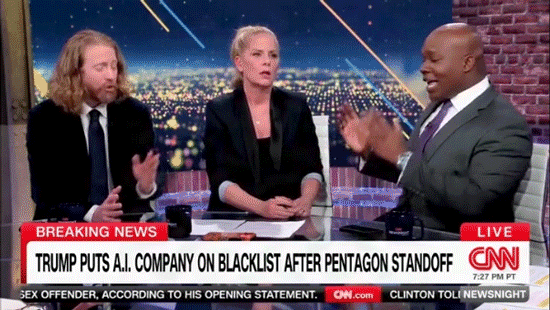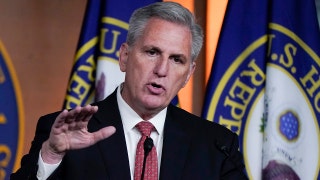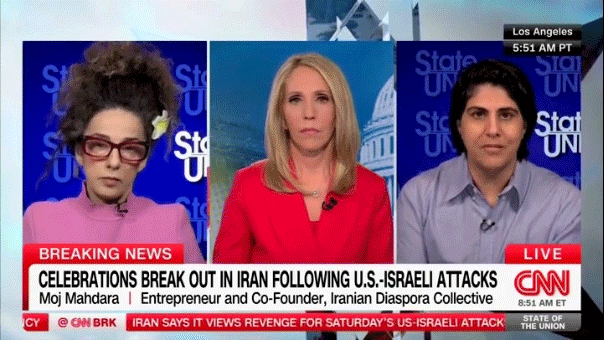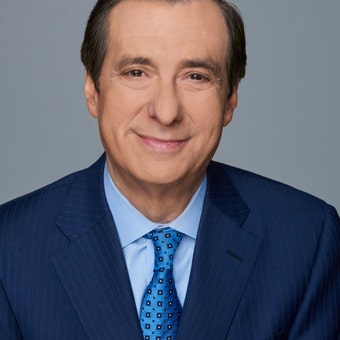Kurtz: Piers Morgan is 'master of media maelstrom'
FOX News' Howard Kurtz and The Spectator US deputy editor Dominic Green join 'The Story' to discuss the Morgan-Markle feud.
In political coverage, and especially on cable news, every issue seems to be polarized to the Nth degree.
Either you argue that Donald Trump did an incredible job and Joe Biden is doing a horrible job, or you insist the opposite is true. Taking a more nuanced position is often dismissed as being wishy-washy.
I have been saying for weeks that while President Biden is moving aggressively to ramp up the troubled vaccine program, President Trump deserves credit for creating Operation Warp Speed—and rarely gets any from the press.
Apparently, I was right, at least according to the New York Times.
Yep, the newspaper that spent four years investigating and often denigrating Trump has looked at the progress on vaccines and delivered, well, a fair and balanced report. The story yesterday by Sharon LaFraniere describes "a more mixed picture, one in which the new administration expanded and bulked up a vaccine production effort whose key elements were in place" when Biden took over from Trump. "Both administrations deserve credit, although neither wants to grant much to the other."
Biden’s key moves were using the Defense Production Act to help Pfizer obtain the needed heavy machinery to expand a factory; pushing Johnson & Johnson "to force a key subcontractor into round-the-clock operations," and getting the rival company Merck to join forces with Pfizer. The president announced yesterday the government will obtain an additional 100 million doses from J&J by year’s end.
MEGHAN, HARRY AND THE MEDIA: HOW A HOSTILE RELATIONSHIP PRODUCED AN OPRAH MOMENT
But the Times also acknowledges that "Biden benefited hugely from the waves of vaccine production that the Trump administration had set in motion. As both Pfizer and Moderna found their manufacturing footing, they were able to double and triple the outputs from their factories."
And then there’s the predictable sniping as officials from both administrations take shots at each other over the development of the shots. In fact, as I was finishing this column, Trump issued a statement: "I hope everyone remembers when they're getting the Covid-10 (often referred to as the China Virus) Vaccine, that if I wasn't president, you wouldn't be getting that beautiful 'shot' for 5 years, at best, and probably wouldn't be getting it at all." Got it.
While the public is polarized as well, I believe there’s more common sense in the country than inside the Beltway hothouse.
The House gave final approval yesterday to Biden’s $1.9-trillion Covid aid package. Recent polls show broad support for the legislation, including about a third of Republicans, as well as for the president’s handling of the pandemic. But not a single congressional Republican voted for the bill—and that’s what has dominated the coverage.
Biden is slated to deliver a prime-time speech tonight to tout his legislative victory—and a president who passed up that opportunity would be guilty of political malpractice. But what Biden hasn’t been doing much this week—or any week, actually—is dealing with journalists. Politico says he’s planning a "media blitz" to sell the benefits of the massive package. There will be "fewer scripted events and private dealings with lawmakers, more interactions with the press and appearances before the public."
But is that true? That would mean more than holding the overdue news conference that Jen Psaki says is coming sometime this month. It would mean a round of interviews with journalists, not just one or two with sympathetic opinion hosts.
As for marketing the benefits of this lengthy and complicated measure, that makes sense. Since the GOP has been unloading on questionable programs that satisfy left-wing groups, Biden and his team are well-advised to make sure Americans know how the money will help their bank accounts, schools and vaccine programs.
SUBSCRIBE TO HOWIE'S MEDIA BUZZMETER PODCAST, A RIFF OF THE DAY'S HOTTEST STORIES
The coverage will play up the partisan warfare; that’s how Washington works. What you won’t see emphasized is that Biden is adding $1,400 stimulus checks to the 600 bucks approved under Trump—and the larger total is exactly what the ex-president, late in the game, insisted he wanted.










































